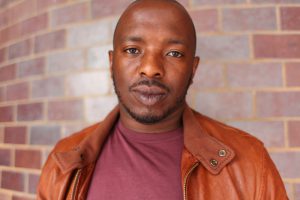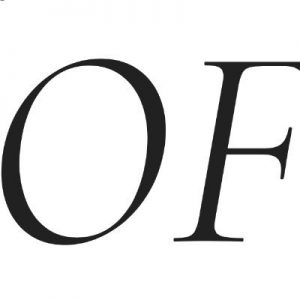By George Kowalik (editor)
I sat down with Nick Makoha, second year PhD student in the English department here at King’s. We mainly talked about Nick’s work with the Obsidian Foundation, but also moved on to his creative work generally. Below is a transcript of our discussion of the Obsidian Foundation. See the attached audio file for the full interview…
Hi Nick – thanks for chatting to me. I’m looking forward to hearing all about what you’re doing and what you’re up to, but primarily I’d love to hear about the Obsidian Foundation. What does the organisation do? How did it start? What are the motivations?
It still feels strange to say that I’m the founder of Obsidian Foundation. It’s a black poets writer’s retreat based in the UK. We had our first retreat last year, in November. We invited poets from all around the world to apply and 150 applications came in, and 50 were accepted on to the programme. We had five high calibre tutors – myself, T.S. Eliot Prize winner Roger Robinson, Raymond Antrobus, Malika Booker, and Dante Micheaux (who won the Four Quartets Prize in 2019).
The reason behind it all starting was a retreat I went to called Cave Canem, which is essentially the same retreat but based in America. It’s what Obsidian is based on. It’s a retreat you attend three times over five years, a one-week retreat. We run ours with exactly the same format; the only difference is that we do ours digitally, whereas Cave has a residency at the University of Pittsburgh. Cave Canem was founded by Toi Derricotte and Cornelius Eady. I spoke to them about wanting to set this up, and I spoke to the previous head of Cave, Nicole Sealey. Everyone was very supportive. Nicole gave me the template for how it runs; Dante, who was both a participant and a staff member at Cave, also helped me with my thinking.

I graduated from Cave Canem in 2015, after doing it in 2013, 2014, and 2015. I wanted to come back and instantaneously set up an equivalent space because there is nothing like that for black poets in the UK – I’d even go as far as saying in Europe. I don’t see any other organisation doing what Cave Canem are doing. But my life caught up with me: I did an MA, my first book came out. Another person who had been on the course – Malika Booker – encouraged me to go to Cave, and I encouraged Raymond Antrobus to go. To my knowledge, we are the only three UK based black poets who have attended, but I might be wrong on that. So, when I came back, I spoke to them and said I’d really like to set this up. I kept speaking to them about it every year. I spoke to several organisations here about setting it up, but for many reasons there was no traction. The main reason was that I was busy, so I never pushed the conversation forwards.
When George Floyd died, it affected many people, but it really affected me. That night, Raymond Antrobus called me. There were many things we could’ve spoken about that night, which we did, but the first thing he said was “so what’s gonna happen with Cave Canem UK.” This was the name before Obsidian got its title. I said I didn’t know, and we just kept talking about why this was needed. He must have called me at about ten o’clock at night and I don’t think we got off the phone until about two or three. The conversation ended like this: I said “look, call me in a week, and if I haven’t done anything, I’m the biggest waste of space. I’m wasting your time. I’m not who I say I am.”
So, within a week – no, literally the next day – I set up the website, set up the Instagram, set up the Twitter, and I went about trying to bring on board the writers who would be the tutors, who all gave me an instant yes. I spoke to Terrance Hayes, who went to the first Cave Canem retreat. I got his advice. I spoke to a lot of other people both here and in America. I just acted as if it was going to happen, even though I didn’t know how it was going to happen. I realised I couldn’t do it by myself, so I got two powerful black names (I call them “entrepreneurs” more than anything; they’re just forces of nature): Tobi Kyeremateng and Theresa Lola, a former Young People’s Laureate for London. I asked them if they wanted to come on board as part of the team, and they were a direct yes. I didn’t even know what roles they were supposed to have, I just knew that they were passionate about transformation in literature and about creating communities. So I said “look, I don’t know what I’m asking of you, I just need your help”, and they were like “yes.”
That was about June/July time. Cut to about two months later, and we’ve got the funding from the Arts council, which was fortuitous, because they’d only just opened up the funding. So we just applied, we got it, and it came a lot sooner than we were expecting. We were able to get on board and partner with a lot of organisations – Poetry London, Poetry School, The Arvon Foundation, Magma, to name a few. It was a pilot, so we projected that the fees for the week would be £50, which works out as £10 a day. Some people spend more on coffee. We did that just as a taster, to get people in, and it was a resounding success. So we got each of the partners to sponsor two places, so we could offer ten bursaries. We had an opening circle, then we had five days of writing poems, reading poems, and being a black community.
For some, it was quite overwhelming because they’d never been in a space with forty-nine other black poets. They’d never been in a space where they don’t have to constantly define themselves to the group. It yielded some really great work. After the retreat we had a showcase with the Poetry School, we had craft talks with Magma, with editors. Craft talks with Granta as well. Now that we’re in our second phase and are planning our second retreat, Magma have come on board and said they will do a special issue with us, an Obsidian issue which will come out next year. We’ve also just got another partner: the Poetry Archive.
I don’t know if that answers your question, but that’s Obsidian.
That’s really cool. It sounds like the values of this project – from what I’ve read on the site and heard you speak about – are immediate and urgent and super contemporary. So it’s fitting that it was borne out of a conversation overnight, one phone call that got the ball rolling, as it were. It’s fitting, in a way.
My next question – which you’ve jumped onto already, which is cool: you talked about the first writing retreat last year… do you want to say a bit more about how it went as a first one, and what the plans are for the next one?
Considering it was digital, I wouldn’t say I was sceptical – was concerned – about how it would translate to being impactful for the poet. When I say poet, or black poet, there is no generic black poet. There are only variants, in the same way that there are different colours of the rainbow. They’re so varied. I wanted to make sure that whenever a black poet came through the door they thought it was helpful. I think they felt that it was amazing. I knew what would work from what I’d seen before, but I took a lot of lead from both Tobi and Theresa and the faculty body.
Remember: there were people from all over the world coming to this, so we had people in different time zones. There were people in Trinidad having to wake up at crazy hours. Ray himself was in America at the time, so his sessions had to be moved to the afternoon (the poets get to have a different workshop with a different poet each day)… so, all Ray’s sessions were in the afternoon. So on that day you were lucky in many ways: you had a normal day if you were in another part of the world, but you got a lie-in if you were in the UK.

The poets had to produce new work each day. They had to read a lot. They had to read each other’s work, critique each other’s work. It was very successful in that way. We also had events around this, including a special talk from Terrance Hayes, which was very powerful. On the last day, one of the founders of Cave – Cornelius Eady – came into the closing circle. We also got to offer all of those who attended and completed the course a special gift of a year’s subscription with the literary organisations we were working with – the RSL, Poetry London, The Poetry Society, Magma. It made the poets feel that they not only belonged to our community but that they had access to the poetry-literature community at large.
So I’d say that it was a resounding success. It was exhausting. But I really hope we can continue doing it year in and year out.
Thanks Nick. Thinking beyond the next retreat, what are – and maybe you don’t have them, so no pressure – what are the bigger plans of where this could be in, say, three years, five years, potentially even beyond?
You’ve already said it without knowing it. The first thing is to last over three years, five years, ten years, beyond. That’s the main plan. A lot of these great initiatives don’t last past three to four years. Even though I’m thinking year by year, I want to get to the point where we’re like “oh, Obsidian Foundation is ten years strong, twenty years strong. Obsidian Foundation is being run by somebody else.” You know, it should have grown by then.
There are many other things we would like to do but, like Nike… Nike sell trainers, that’s what they do. The other things are accessories. You wear their basketball gear, but you’re buying their trainers. You wear their golf gear, but you’re buying their trainers. Our trainers are the retreat. The plan is not only to have longevity but also to have quality with that retreat. We’re attracting black poets and increasing the volume of those that are seen in the world, and they’re coming out having developed into quality writers having an impact in the society that they belong to.
I’m sure there’ll be other partnerships, which we have to navigate carefully, because, as I say: the main focus is the trainers, which is the retreat. It might change in time – I might have more bandwidth to accommodate more poets, but right now I’m very concerned about the fragility. The people aren’t fragile, but the community is because it’s brand new. As with anything that’s brand new, it needs time to form. My immediate thing is how do we form so that we are a known and plausible and credible part of the infrastructure, but so that we are something that is transformative? We can’t be another institution that just has institutional thinking, we’re more dynamic. That’s what I would like. That’s what’s on my mind.

The rest of my conversation with Nick can be found at the link below:
Information and details on the Obsidian Foundation and Cave Canem can be found at https://obsidianfoundation.co.uk/ and https://cavecanempoets.org/. More on Nick and his work generally can be found at https://nickmakoha.com/.
Nick Makoha was born in Uganda and fled the country with his mother as a result of the political overtones that arose from the civil war during the Idi Amin dictatorship. He has lived in Kenya, Saudi Arabia, and currently resides in London. He was shortlisted for the 2017 Felix Dennis Prize for Best First Collection for Kingdom of Gravity. He is a Cave Canem Graduate Fellow, Malika’s Kitchen Fellow, and Complete Works Alumni. He won the 2015 Brunel International African Poetry prize and is the 2016 winner of the Toi Derricotte & Cornelius Eady Chapbook Prize for Resurrection Man. His poems have appeared in The New York Times, Poetry Review, Rialto, Poetry London, Triquarterly Review, Boston Review, Callaloo, and Wasafiri.
Blog posts on King’s English represent the views of the individual authors and neither those of the English Department, nor of King’s College London.
You may also like to read:

